First and foremost, neither is better or worse. It all comes down to personal preference. But keep reading for our take on Ricotta vs Cottage Cheese Lasagna—our take might surprise you.
Table of Contents
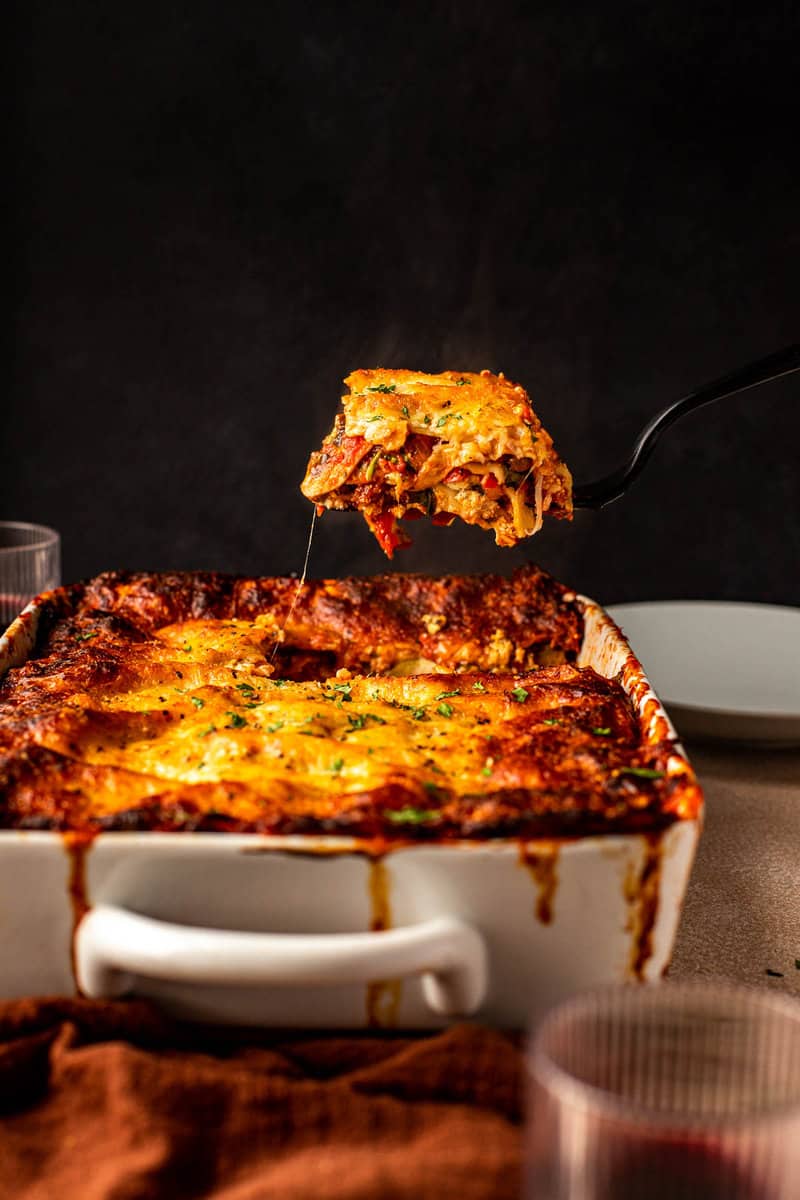
What is Ricotta Cheese?
Ricotta cheese is a fresh cheese known as “whey cheese.” It’s made from the resulting whey protein left over from making other types of cheese. You can read more about the process here. But for cooking purposes, know that it’s light, fluffy and milk in flavor. Ricotta is best used in lasagna, as fillings for pasta shells, or as a base for dips.
What is Cottage Cheese?
Cottage cheese is also a fresh cheese. It features small curds of cheese in a creamy, milk-like sauce. It’s made by adding an acid to milk, resulting in curds separating from whey. The curds are then cut, pressed, rinsed and seasoned lightly with salt.
Cottage cheese is great in lasagna, as a filling for ravioli, or blending into sauces and dips. We also like to blend cottage cheese to make creamy, protein-packed salad dressings. Mix them into batters to make Cottage Cheese Pancakes or Cottage Cheese Cake. Spread cottage cheese on a plate and top it with canned smoked salmon, herbs and fresh cucumber slices for a delicious and satisfying lunch.
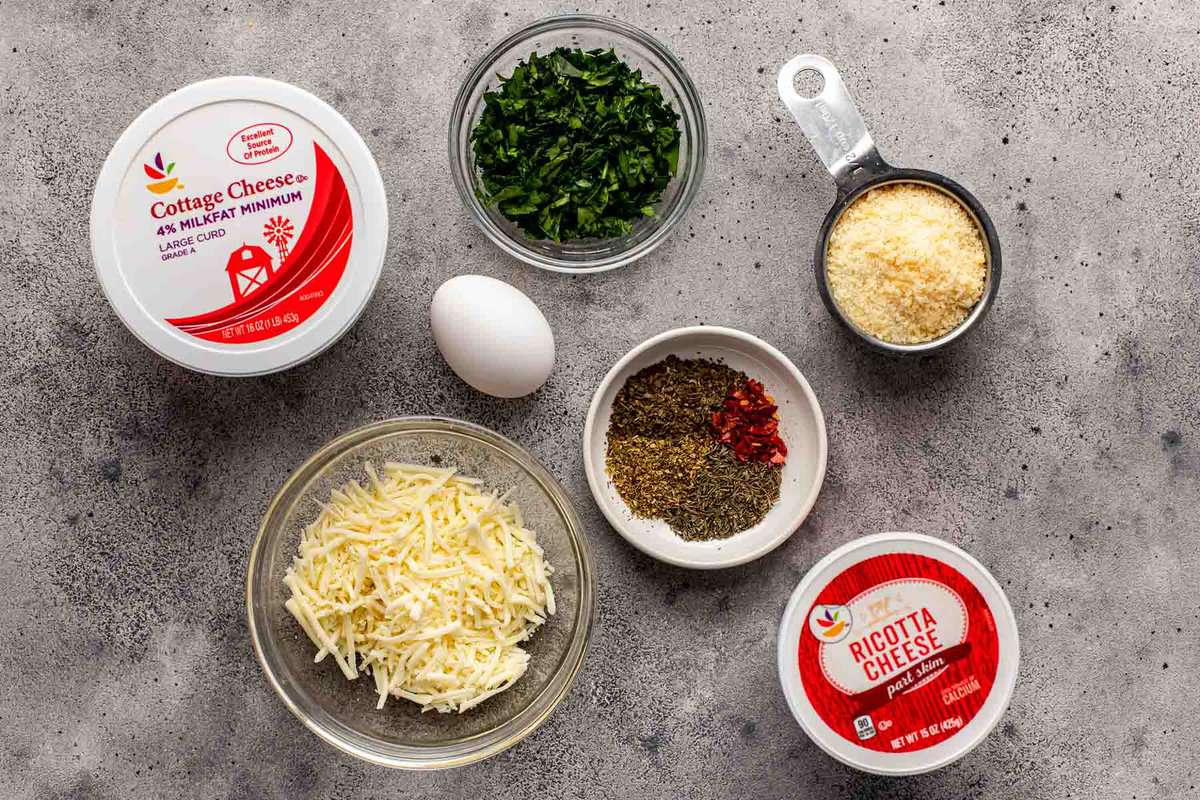
Pros & Cons of Ricotta
If you want a lasagna that’s rich, creamy and decadent, turn to whole milk ricotta. It delivers on richness and creaminess! Be sure to season the cheese well with salt, crushed red pepper flakes, black pepper and dried herbs. Plain ricotta can be, well, very plain and mild. At the very least season it with kosher salt!
Pros & Cons of Cottage Cheese
For a slightly lighter, less-indulgent lasagna, turn to whole milk cottage cheese. It’s less creamy but has great cheesy flavor. The cheese curds create light pockets of cheesiness without weighing down the lasagna. One thing we love about cottage cheese—it’s already nicely seasoned with salt. We recommend adding some pepper, dried herbs and crushed red pepper.
The drawback with cottage cheese is its lack of thick, creaminess.
Comparing Nutrition
| per 1 cup | whole milk ricotta cheese | whole milk cottage cheese |
|---|---|---|
| Calories | 432 | 215 |
| Fat | 32 grams | 9.5 grams |
| Sat fat | 20 grams | 4 grams |
| Protein | 28 grams | 24 grams |
| Carbs | 7 grams | 7 grams |
| Sugar | 0.7 grams | 5.8 grams |
| Cholesterol | 125 mg | 36 mg |
| Sodium | 207 mg | 792 mg |
As the table shows above, per 1 cup measurement, whole milk ricotta has double the amount of calories, more than double the fat content, and five times as much saturated fat as whole milk cottage cheese.
On the other hand, whole milk cottage cheese has more than three times as much sodium as ricotta cheese does.
Protein and carbohydrates are where ricotta and cottage cheese are similar.
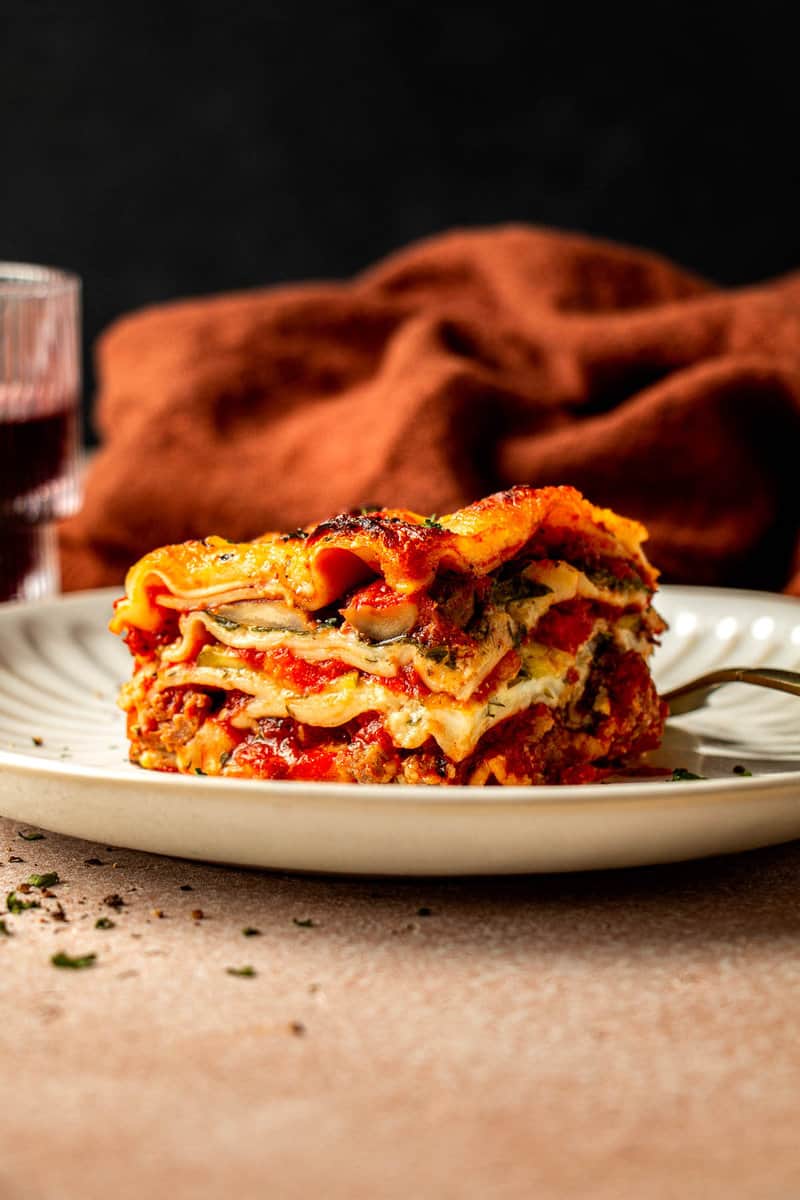
The Best Cheese For Lasagna
The key to creating the absolute best lasagna is to use a combination of ricotta and cottage cheese. Ricotta brings the rich creaminess while cottage cheese lightens things up and seasons the whole dish.
For even more cheese, we recommend also using shredded Mozzarella cheese and Parmesan cheese (or Pecorino Romano).
No more wondering whether ricotta or cottage cheese lasagna is better. Try it for yourself and make our Cottage Cheese Lasagna recipe which combines the best of both parts of both and uses half ricotta and half cottage cheese. Our homemade lasagna recipe features traditional Italian cheeses, spicy Italian sausage, no-boil noodles, homemade tomato sauce, and loads of fresh veggies, fresh parsley and dried herbs.
What Curd Size is Best?
When it comes to choosing a curd size for cottage cheese, we like small-curd cottage cheese. But frankly. it doesn’t make much of a difference. If you like and have large curd cottage cheese, use that!
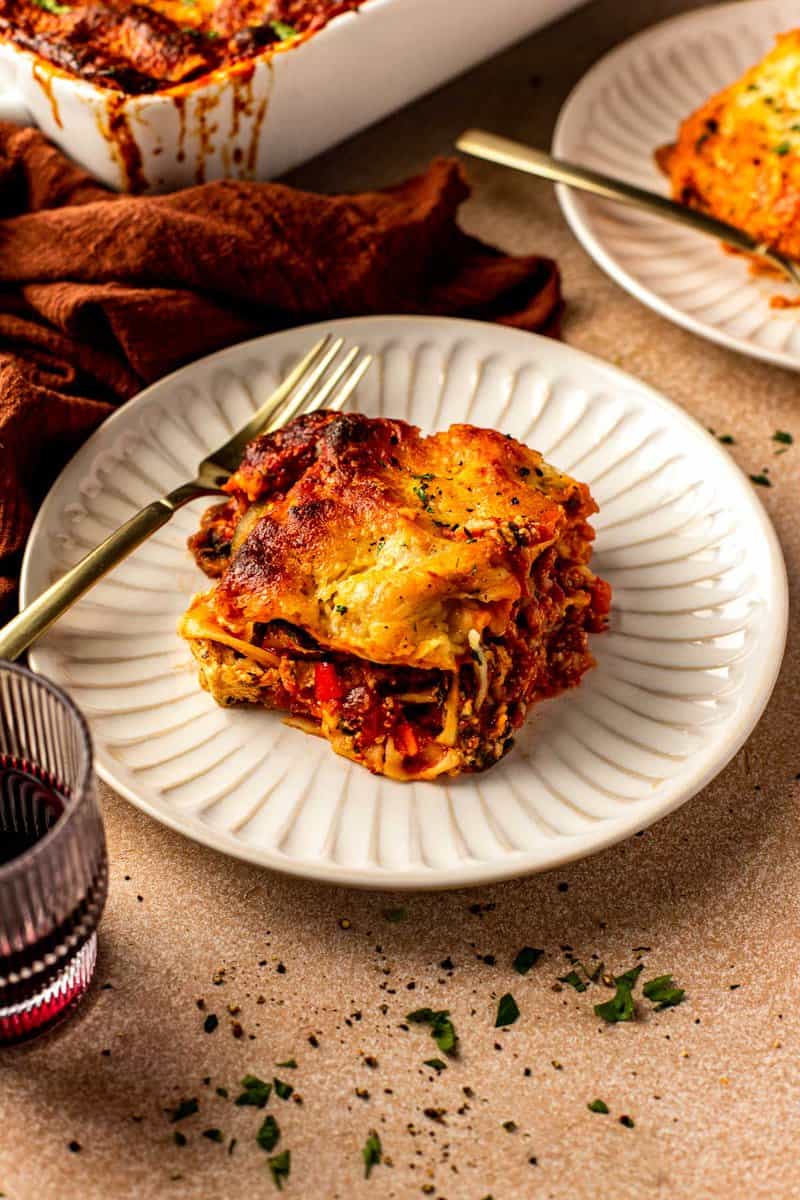
Whole Milk or Low Fat?
We are firm believers that whole milk dairy is the best option, always. Can you use low-fat cottage cheese or low-fat ricotta cheese? Sure. The lasagna won’t be as creamy, will likely have excess moisture pooling in the pan, and it may even have a slight grainy texture to it—but nothing that will keep you from enjoying every bite. If you have to choose low-fat for one of them, opt to use low-fat ricotta and whole milk cottage cheese.
Substituting Cottage Cheese
If you don’t want to use cottage cheese, you can simply use more ricotta cheese. (Some recipes feature béchamel sauce—we find that unnecessary).
More Cheesy Recipes to Try
Appetizers
Spinach Artichoke Mac and Cheese Cups
Pasta & Noodles
Aged Gouda Spaghetti alla Carbonara
Soups, Stews & Chilis
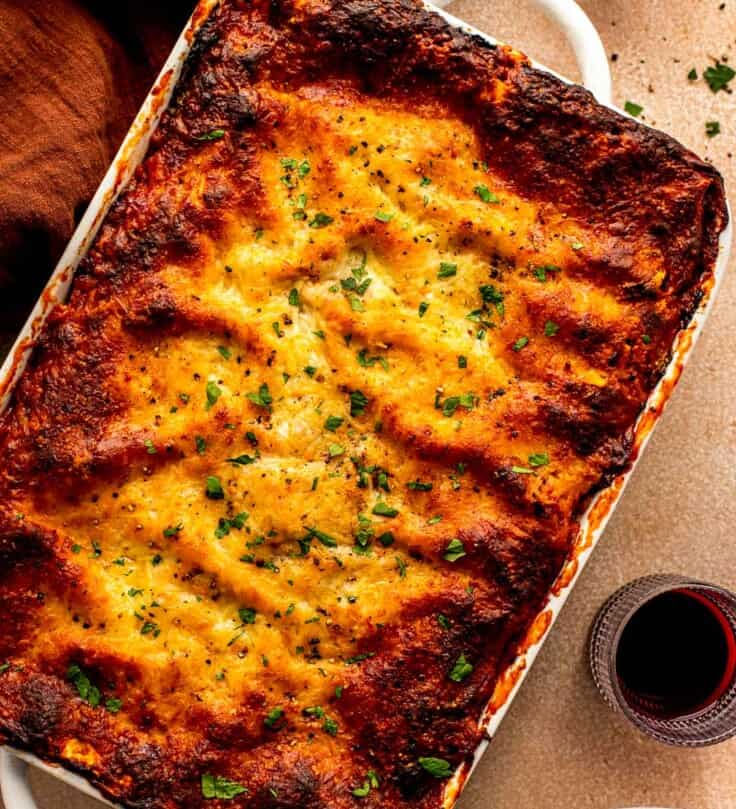
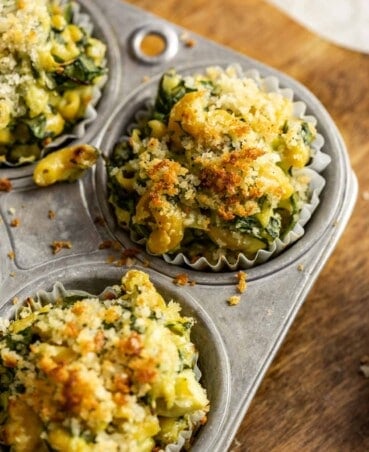
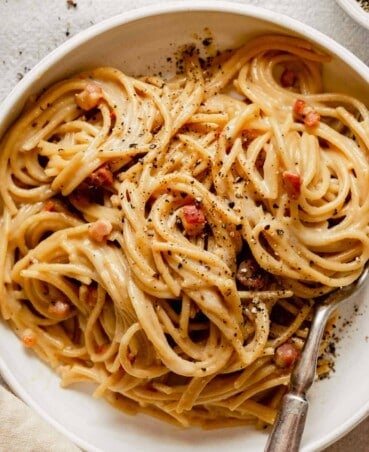

Mix cottage cheese and ricotta together with eggs salt pepper and Parmesan cheese for your cheese layer.
You’re welcome.
Yup, that’s exactly what we say in the “Best Cheese for Lasagna” section. It’s how we make our cottage cheese lasagna. https://zestfulkitchen.com/lasagna-recipe-with-cottage-cheese/
I will say, in case any of you are cooking for others in addition to yourselves, growing up I believed that I hated lasagna because I had only had various iterations of americanized “lasagna.” After befriending several individuals of Italian heritage (that they kept authentic), they insisted that I try their lasagna, and I realized I actually LOVE lasagna. One catch though: since then, I have not seen one single authentic recipe with cottage cheese. Ricotta and mozzarella seem to dominate South Italian lasagna while bechamel and parmesan are popular in the northern counterpart. So if you want to impress your company, especially if they know what real lasagna should taste like, then I recommend just using ricotta/mozz/parm if you want more than 2 types. If you want to try the bechamel sauce also, it really is not that hard of a technique, so don’t let the tricky pronunciation hold you back from being the best home cook you can be, because despite what the blurb may say, it is totally worth it unless you are the type of cook that really struggles with techniques like that.
Utter sacrilege!! Cottage cheese has NO place in authentic lasagna. My Sicilian grandmother is likely rolling in her grave (God rest her soul).
I puree the cottage cheese to give it a smoother texture. I don’t think it tastes much different from ricotta. If you like to cook with organic ingredients, cottage cheese is much less expensive than ricotta.